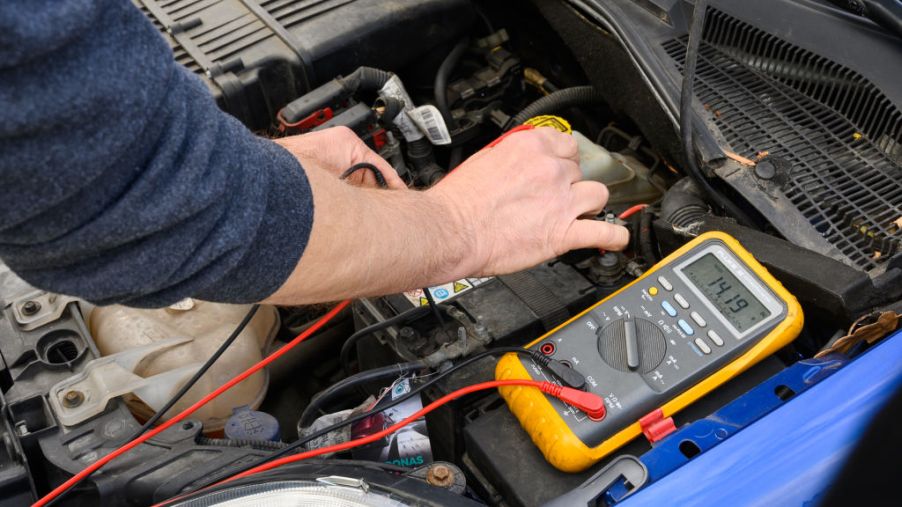
Easy Ways to Extend the Life of Your Car Battery
Your vehicle’s battery is vital. It starts your car each day and charges your devices while you’re on the road. The battery is essential to many of your vehicle’s basic functions so it’s important to know when it needs to be replaced and how you can make it last longer.
How long do car batteries last anyway?
How long your car’s battery lasts depends on how long it can hold a charge. Batteries can be recharged. But it does reach a final point when it won’t recharge anymore and at that point, the battery is dead. Its longevity is also affected by things like humidity and temperature.
The average car battery lasts from two to five years. The weather has a big impact on the life of a battery. For example, the combination of a scorching hot day and the heat already generated under the hood by the engine can be a big drain.
Here are seven simple ways you can extend the life of your vehicle’s battery.
Ensure it’s tightly fastened
It’s always a good practice to check your battery terminal regularly. If the battery isn’t securely seated in the mounting bracket it could vibrate and cause internal damage and short-circuiting. If you live on country roads or hilly country, it’s even more important to have your battery’s seating checked often.
Make sure you don’t tighten the battery clamps too much because that can cause damage too. Only tighten everything until you get resistance. After that, usually, another half turn is all you need.
Prevent Corrosion
Over time, your battery terminal will corrode. But if you keep on top of the corrosion and keep it from building up, you’ll extend your battery’s life. Removing the corrosion is as simple as scrubbing down the terminals using a toothbrush or other soft brush with a water and baking soda solution. Make sure you clean the battery carefully. Rinse with cold water and then dry with a rag.
The key is making sure your battery is dry and clean. Batteries that are never cleaned can produce a discharge that can cause short-circuiting and other damage.
Minimize quick car rides
Did you know that shorter car rides don’t give your car’s battery enough time to fully charge? You can help prolong your battery by driving for longer periods of time as opposed to many short trips.
If you don’t drive every day, a portable car battery charger might be a wise investment for you. The chargers can jump your battery all by itself in case a dead battery ever leaves you stranded.
Remember to turn off the lights
One of the battery’s most important functions is powering all the lights inside and outside of the vehicle. But keeping those going puts a strain on the battery.
You can help by always remembering to turn off all lights when you exit. Nationwide recommends parking in such a way that you have to walk by your car to get to your destination to help you remember to shut the lights off.
Test your battery regularly
It’s important to check the voltage of your battery monthly with a voltmeter to keep on top of your battery’s health. The longer a battery remains fully discharged or even partially so, the more you shorten its life. A normal lead-acid battery with a full charge has a voltage of around 12.7 volts or more.
If the voltage falls below 12.5 volts, immediately recharge the battery. And know your numbers. At 12.4 volts, a battery is only half charged. At 12.0 volts, it’s dead.
Reduce power while idling
Using lights, charging devices, and running the air conditioning while your engine isn’t running can put an enormous strain on your vehicle’s battery. Batteries perform best when they are as close to a 100% charge as possible.
When you exit the vehicle, make sure all interior lights are off. Double-check that all your lights are off before you walk away. It will keep you from encountering a dead battery the next time you need to drive somewhere.
Minimize heat
While chilly weather makes it more of a challenge for batteries to start your car’s engine, it’s not the cold that drains and kills them. More often, it’s the heat exposure from the summer before. Scorching temperatures are hard on batteries because it causes the water from the cells to evaporate at a rapid rate.
Then the cold weather comes along and seems to be the culprit for the weakened battery. The lower temperatures leech its remaining strength.
What can you do about this? In your individual situation, think of what ways you can reduce the temperature your car’s battery is exposed to. If you aren’t able to park your vehicle in a cooler garage, maybe there’s some shade where you can park it in hot weather.


